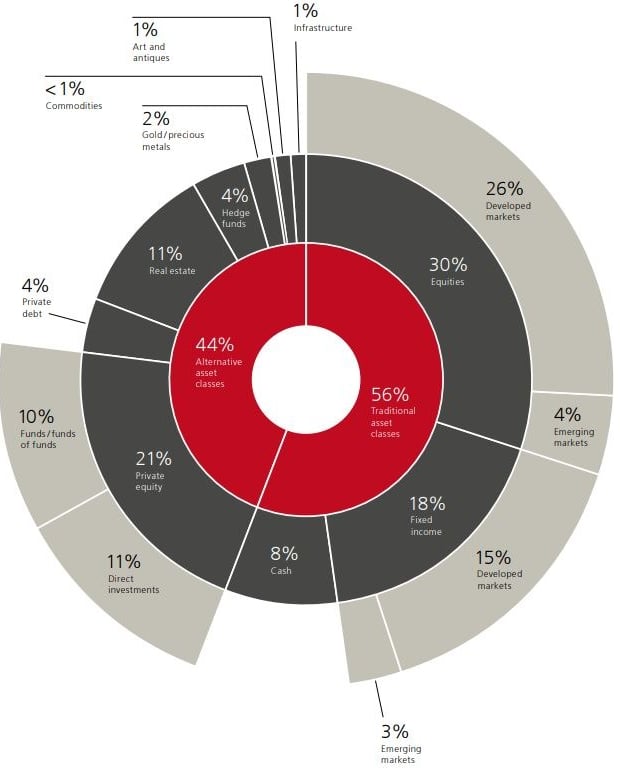Family Offices: Quiet Giants of Global Capital
Family offices, once discreet structures for managing multi-generational wealth, are now some of the most powerful players in global finance. Beyond blue-chip stocks and bonds, they’re increasingly directing capital into alternative assets — real estate, private equity, renewable energy, logistics, art, venture capital, and even digital assets. This shift raises a unique challenge: how do you value assets that don’t fit into traditional models?
9/10/20252 min read


Family offices, once discreet structures for managing multi-generational wealth, are now some of the most powerful players in global finance. Beyond blue-chip stocks and bonds, they’re increasingly directing capital into alternative assets — real estate, private equity, renewable energy, logistics, art, venture capital, and even digital assets.
This shift raises a unique challenge: how do you value assets that don’t fit into traditional models?
The Rise of Alternative Allocations
According to the UBS Global Family Office Report 2025, family offices now allocate around 44% of their portfolios to alternative investments — with private equity alone accounting for almost a quarter.
The rationale is clear: alternatives provide diversification, inflation hedges, and access to outsized returns that traditional markets may not deliver. But valuing these assets is far from straightforward.
Why Valuation Is Different Here
Illiquidity – Unlike listed equities, private deals in venture, real estate, or infrastructure don’t have daily market quotes.
Complex Risk Factors – Political stability, regulatory frameworks, and regional market dynamics can heavily influence returns.
Non-Financial Elements – For art, collectibles, or even impact-driven green infrastructure, intangibles and sentiment play a role.
Traditional multiples or DCF models may not fully capture these nuances, forcing valuation advisors to blend quantitative rigor with qualitative judgment.
Examples from Around the World
Saudi Arabia & Logistics: Several family offices in MENA have poured capital into logistics hubs and industrial zones tied to Vision 2030. Here, valuation depends not just on projected cash flows, but also government policy execution and geopolitical risk.
India & Renewables: Indian family offices have increasingly backed solar and wind projects, where valuations hinge on regulatory subsidies, power purchase agreements, and technological adoption.
Pakistan & Startups: We’ve seen family capital flow into companies like Bykea, where early investors had to weigh both growth potential and political-economic risk when valuing the business.
Global Case – WeWork: Many family offices participated in pre-IPO rounds, later discovering that inflated valuations based on growth narratives collapsed when fundamentals were re-examined.
Each case shows why valuation in this space cannot be cookie-cutter as context is everything.
Beyond Money: Legacy and Values
Unlike institutional investors, family offices often have multi-generational horizons and legacy goals. This makes impact investing and ESG a significant driver. For example, investing in green infrastructure might not only be valued on IRR, but also on reputational capital and alignment with family values.
That dual lens — financial return plus legacy impact — makes valuation uniquely layered in this segment.
How Advisors Create Value
For advisors like Epoch Ventures, working with family offices means:
Building bespoke valuation frameworks tailored to alternative asset classes.
Stress-testing assumptions with geopolitical and macroeconomic scenarios.
Integrating both financial metrics and qualitative factors (governance, sustainability, family legacy).
Done right, this process helps families deploy billions in ways that are strategic, values-aligned, and resilient.
Family offices are no longer passive wealth managers. They’re becoming active global investors in alternative assets, reshaping entire industries. But as portfolios expand into unfamiliar territory, valuation becomes as much art as science.
For families, it’s not just about protecting wealth — it’s about stewarding capital with foresight, discipline, and purpose. And for advisors, it’s about being the trusted guide in a landscape where numbers meet legacy.



Tailored financial solutions for businesses, globally.
Contact US
info@epochventures.org
+1 (571) 475 2049
+44 746 223 0134
© 2025. All rights reserved. Designed & Maintained by Zinco Systems


